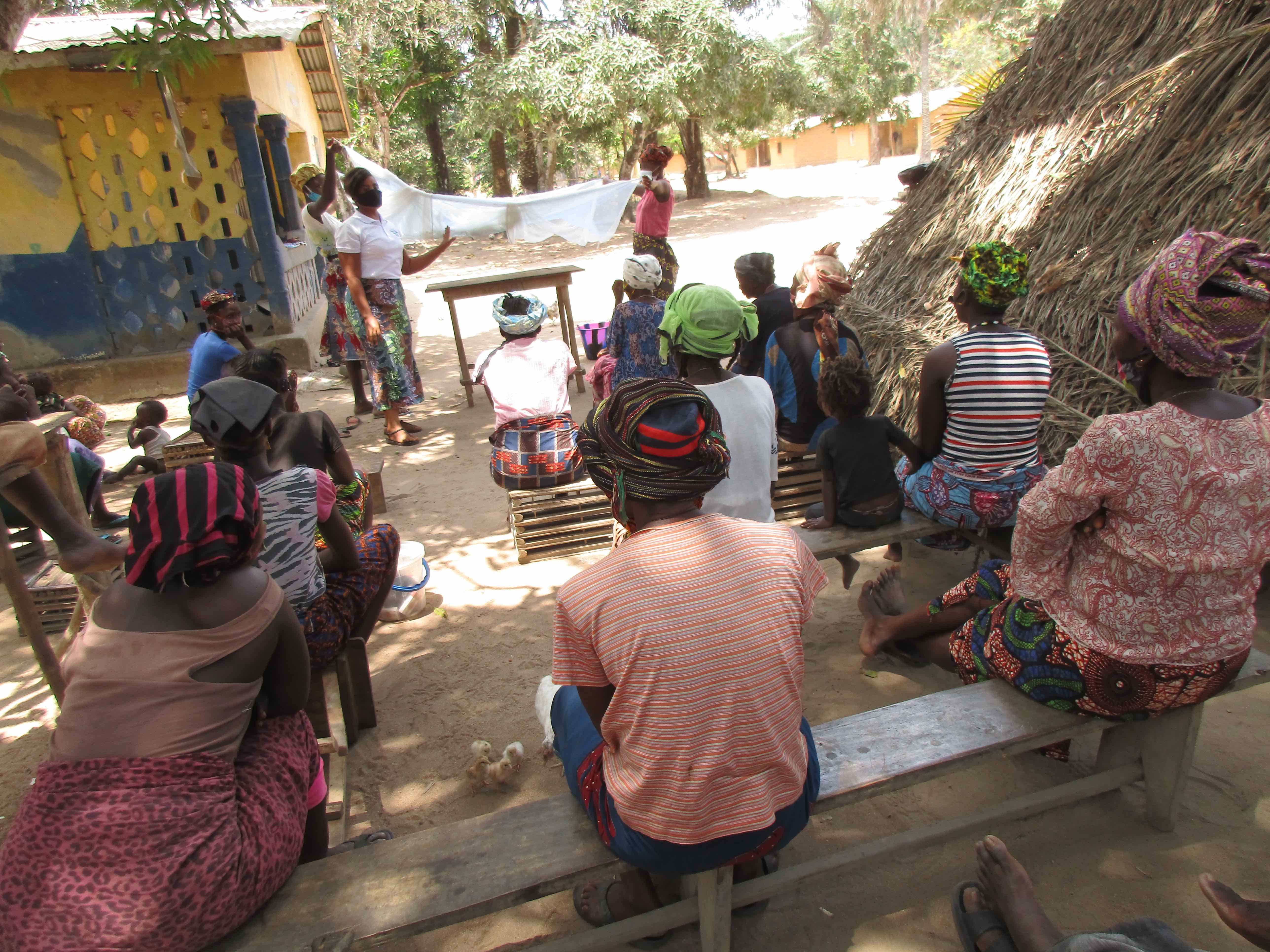The women and children in Kalangba Junction wake up very early each day to fetch the best quality water. Early in the morning, there is a likely chance of getting water while it is still low in turbidity, or silt, from one of the community's unprotected wells. However, the water they collect is still contaminated. Our staff reported that a close look at some of the water fetched reveals some tadpoles accompanied by a pungent smell of mud and fish.
This community has a lot of unprotected wells, but most of them dry up in the dry season. This forces women and children to more undesirable water sources further from home where the water is still open to contamination from humans and animals. Both their primary and alternate water sources are unprotected hand-dug wells with no casing and no water treatment of any kind available. Large animals are left to roam and defecate around the wells while any water, dirt, garbage, and small animals from the ground's surface fall into the wells and get trapped.
"Not having access to clean and safe water has affected our lives in more ways than one. I was born and raised in this community and have been drinking the same water for the past 60 years," said Headman Morlai Sesay.
"I know the water is not safe for us, but what other choice do we have? We have asked for help over and over from politicians, but we only get a reply during the election, and immediately after they forget about us."
We also met teenager Fatmata while visiting the community. Fatmata shared that getting up very early in the morning to go to another person's yard to fetch water while still sleeping is something she hates doing.
"The adults can be very mean. Sometimes, I am sent away with no water and have to wait hours that I would have already gone to school most times," she said.
The most common livelihood in this community is farming. With one of the largest open markets in the district, selling food items is one of the easiest things. The farmers get the opportunity of selling their product instead of first selling it to a middle man. They save money on transport, and the fruits and vegetables are picked hours before being sold, guaranteeing their freshness.
Many young men here have embarked on motorbike taxi driving as a lucrative source of income, while others use a converted generator as a machine to crack open palm kernel nuts. The high production of palm oil has also brought about job creation for otherwise idle young men and boys.
At the same time, the women and girls focus on gardening. Most gardening here is now reliant on the use of fertilizer, which has its side effects. The byproduct from the fertilizers has increased the contamination of not just the swamps, but also the community's many unprotected water sources.
What we can do:
New Well
We will be drilling is centrally located and will relieve many people of the long journey to fetch water. This project will ease the people here of their water challenges.
Our team will drive over the LS200 mud rotary drill rig and set up camp for a couple of nights. Once the well is drilled to a sufficient water column, it will be cased, developed, and then tested. If these tests are positive, our mechanics will install a new India Mark II pump.
This community has been pushed to open contaminated well for their water. By drilling this borehole, Tholmossor Community will be provided with plenty of accessible clean drinking water.
Training
There will be hygiene and sanitation training sessions offered for three days in a row.
Community members will learn how to make a hands-free handwashing station called the "tippy-tap." We will use these tippy taps for handwashing demonstrations and will also teach about other tools like dish racks and the importance of properly penning in animals. We will highlight the need to keep restrooms clean, among many other topics.
This training will also strengthen a water user committee that will manage and maintain this new well. They will enforce proper behavior and report to us whenever they need our help in solving a serious problem, like a pump breakdown.

 Borehole Well and Hand Pump
Borehole Well and Hand Pump
 Rehabilitation Project
Rehabilitation Project































